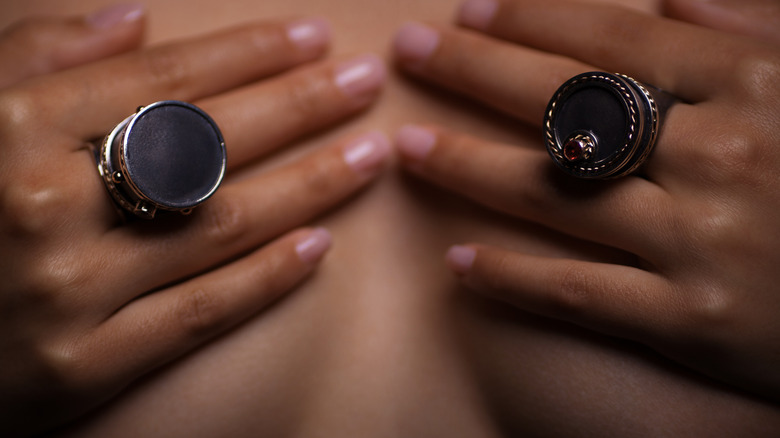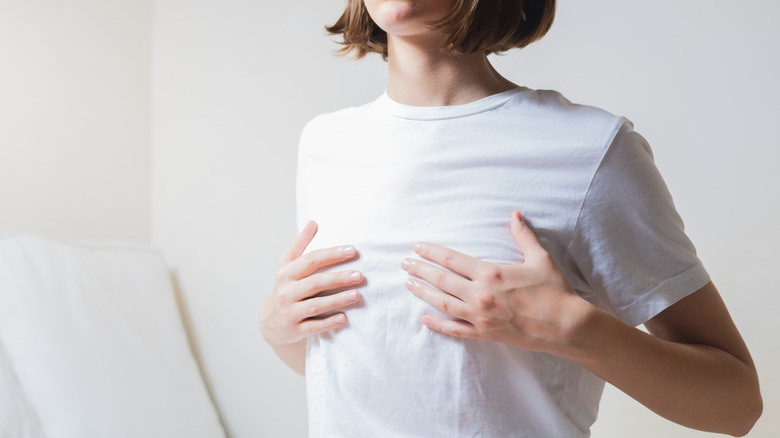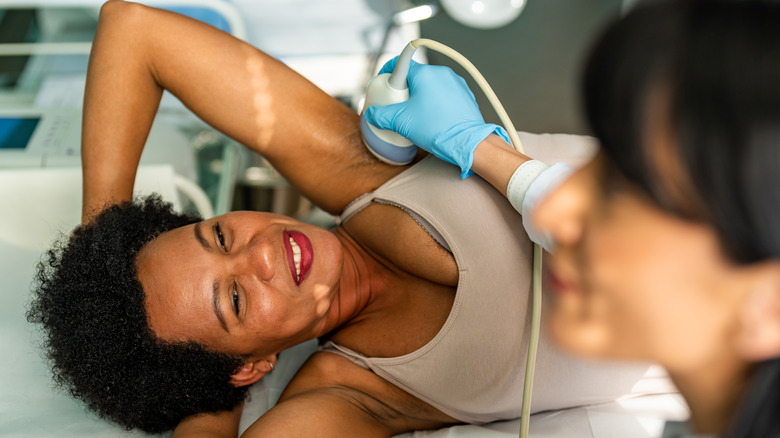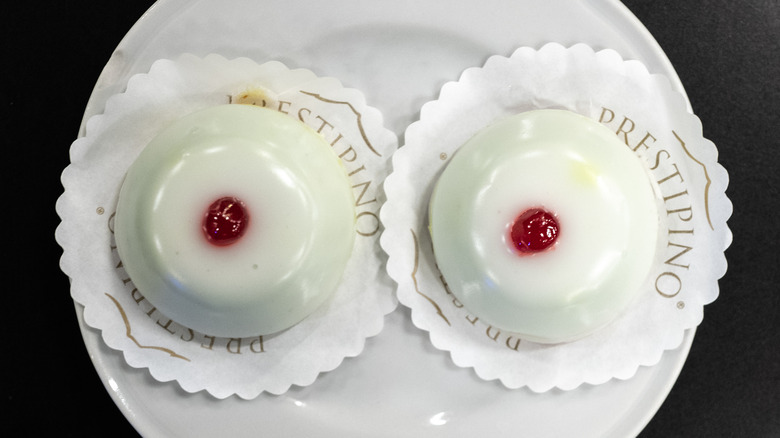We're Getting Real About Nipples: Why Are They So Sensitive (Or, Sometimes, Not Sensitive Enough)?
Nipples are a fascinating part of the human body. Not only are they a major erogenous zone that can, for some, induce orgasms when stimulated, but there's far more to them than that. They come in different colors (that darken during and after childbirth), range in size, may or may not be a bit hairy (which is totally normal!), and if something isn't right, they can let us know that it's time to see a doctor.
Nipples may also be sensitive — but the degree of sensitivity depends on the person. This may lead one to wonder, "How sensitive is normal?" Should they be so sensitive that they feel like they're about to start an orgasmic fire even with a gentle touch of fabric? Should nipple sensitivity be triggered somehow? There's no one straight answer as to why some nipples are more sensitive than others, so let's delve into the wonderful world of nipple sensitivity and unpack some possible reasons.
Causes of sensitive nipples
If your nipples are sensitive, there could be many reasons for it. For starters, where you are in your menstrual cycle always plays a role due to the hormones involved. Nipples might feel extra sensitive the days leading up to and during your period because of the increase of estrogen and progesterone, via Medical News Today. In fact, breasts as a whole can be extra sensitive during this time of the month. But general skin irritations can also contribute to sensitivity, like eczema or chafing, as can nipple size. Yes, you read that correctly: nipple size.
"Anatomic variants in nipple shape and size might be genetic and in some cases," gynecologist Alyssa Dweck, MD tells Well + Good. "For example, in those with larger nipples [they] might have more sensitivity due to chafing from bras and fabric."
Man-made fabrics like polyester and rayon can exacerbate nipple irritation. Because these materials don't breathe like cotton does, it can result in the building up of sweat, and sweat that's lingering on the skin for too long can contribute to bacteria that can negatively affect the health and comfort of your nipples. If this appears to be the culprit in regard to your nipple sensitivity, then it's time to back away from man-made fabrics, especially when it comes to bras and sports bras. If you go braless, be cognizant of the material that will be touching your nipples for an extended period of time.
Why your nipples might not be sensitive
While there may be an expectation that nipples should enjoy being stimulated, especially in sexual situations, some people simply don't have sensitive nipples — which is absolutely normal. Just because it's an erogenous zone, doesn't mean your nipples must be sensitive to the touch. Like any other part of the body, sensitivity differs from person to person. Not everyone has ticklish feet and not everyone has sensitive nipples. However, research has found that lack of nipple sensitivity could be related to breast size. According to a 2014 study published in Elsevier, large breasts are 24% less sensitive than small breasts.
"Larger breasts have more fatty tissue than glandular tissue, which is the most sensitive part," sexologist Rachael Ross, MD, PhD tells Cosmopolitan. "With smaller breasts, the glands are easier to stimulate during foreplay because they're not underneath a fatty layer."
But while that may play a role in lack of sensitivity, nerve placement, the location of your nipples, your body's usual levels of estrogen and progestogen, and genetics all contribute to just how sensitive your nipples may or may not be.
What nipple sensitivity can tell us about our body
For the most part, nipple sensitivity is nothing to worry about and is just a general annoyance for some — but in certain cases, it can be an indication of health issues and changes in the body. For example, sore breasts and sensitive nipples can be the initial giveaway that you're pregnant — even before you realize you've missed your period.
In rare cases, nipple sensitivity can be the result of breast cancer or Paget's disease of the breast. If this is a possibility, the soreness may be accompanied by the nipples changing shape or nipple discharge. For people who are breastfeeding, sensitive nipples could also be your body's way of telling you that you have mastitis, an infection of the breast, or thrush, a yeast infection in the nipples. Folliculitis, in which the hair follicles around the nipple and areola become clogged causing infection, can also lead to sensitive and sore nipples, via Cleveland Clinic. If any of these seem like they may be a possibility, it's important to see your medical provider as soon as possible.
Possible treatments for nipple sensitivity (or lack thereof)
If your nipples are too sensitive, taking a look at the fabric you wear is a good place to start. Also, limiting your salt intake when you're menstruating, avoiding caffeine, exercising (with a nipple-friendly bra), and talking to your doctor about possibly changing your hormonal birth control pills are steps to take. Over-the-counter anti-inflammatory medication like ibuprofen and creams can also aid in taking your nipple sensitivity down a bit.
On the flip side, if you're looking to treat your not-so-sensitive nipples, things are a bit more complicated. Whether your lack of nipple sensitivity is just how your nipples always were, or it's the result of surgery, breastfeeding, or getting older, PRP (Platelet Rich Plasma) can help. According to the Sunshine Health Care Center, when PRP is injected into the nipple area it helps to regenerate the nerve endings that affect the nipples by increasing blood flow, which is essential to increasing sensitivity. This procedure is similar to Botox (both cosmetic and medical) in that you make an appointment, get a few injections, then go about your day.
No matter what your nipple sensitivity happens to be, it's important to realize that there's no "right" level of sensitivity. So if you don't feel much at all or feel too much, you can either accept that that's how your nipples are or look into treatments to change your nipple sensitivity.




